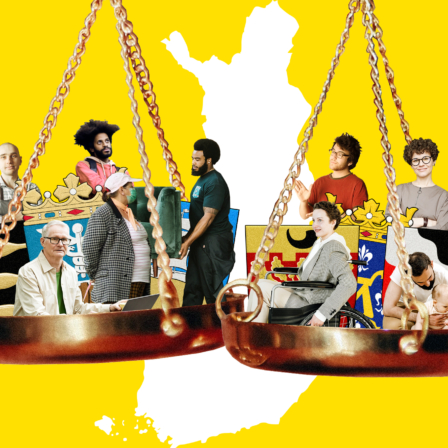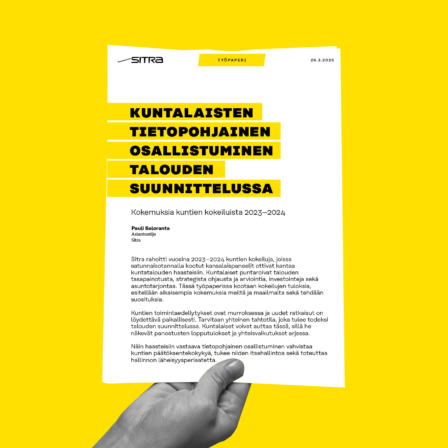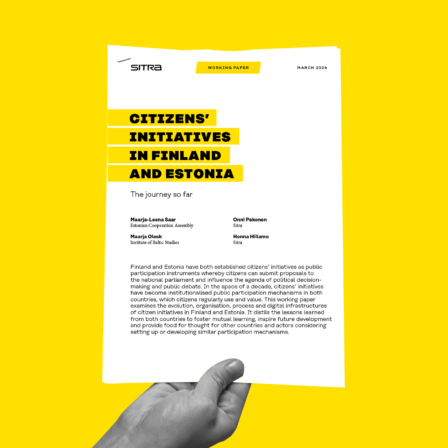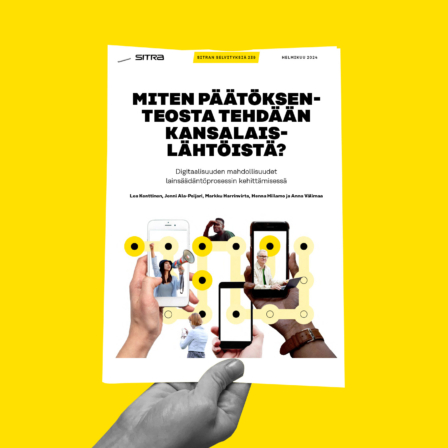The Miten Suomessa säädetään laki (How a Law is Made in Finland) report brings a new perspective to the description of the stages of the legislative process. The process of law-making has not previously been seen viewed from the perspective of the literal meaning of democracy: people’s rule. For this reason, the political process has often remained obscure and is even unknown to many of those involved.
“The quality of law-making has been criticised for decades. The focus has been on the drafting of laws, not on the overall process and its management. There is little management of the whole process, which is why its development is also deficient,” says Jouni Backman, Senior Adviser at Sitra, and a former government minister and Member of Parliament, who led the study.
The report examined, among other things, the stages in the process of enacting law. It revealed that there is no overall view of the processes in the ministries, the government and Parliament. Up-to-date and reliable information on the progress of the legislative process would be essential for people to be able to participate in and influence the process. Today, the availability and quality of information varies greatly – and some data is not public at all.
“The current process is not transparent enough and does not provide the public with timely opportunities to be involved and have an influence. These must be promoted by increasing the transparency of the legislative process, as required by the Constitution. Citizens’ initiatives need to be reformed as well, because they are now placed in the decision-making stage, not the actual initiating stage,” Backman says.
The study is based on a project by Sitra and QPR Software Oyj, which specialises in process mining. It modelled the stages of legislation and extracted timestamped data from the different stages of the process. Such a data-driven review has not been done previously in the government or Parliament. The report therefore recommends more use of process data in managing and developing the legislative process.
To support this development, Sitra will also publish a memorandum written by Hanna-Riitta Härkönen: Lainsäädännön arviointineuvoston rooli korona-aikana (the Role of the Finnish Council of Regulatory Impact Analysis during the coronavirus pandemic). Based on interview and survey data, the memorandum describes perceptions of the role of the Finnish Council of Regulatory Impact Analysis during the coronavirus pandemic as part of the legislative process. Concerns were raised about such things as the tight schedules and delays in the review process, even though they were expedited by the Council during the pandemic. The memorandum continues the series published by Sitra describing decision-making during the time of the coronavirus. Previously, a memorandum by Matti Mörttinen was published titled Valtioneuvoston ydin kriisitilanteessa (the Heart of the Government in a Crisis Situation).
















Recommended
Have some more.